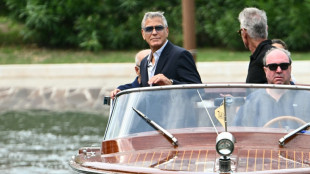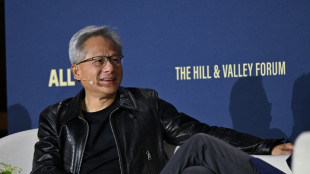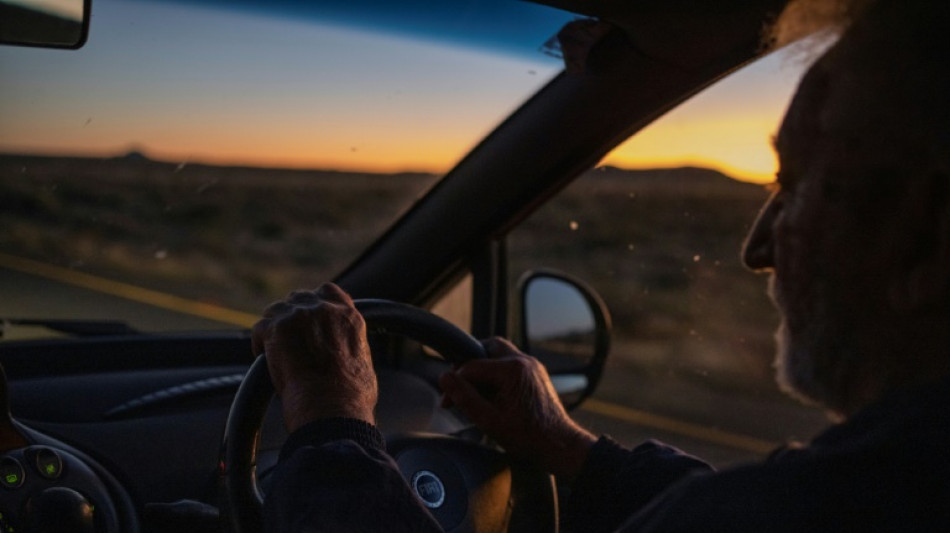
-
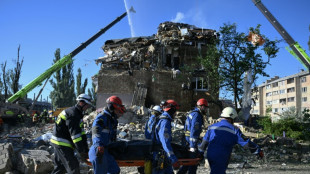 US approves $825 mn missile sale to Ukraine
US approves $825 mn missile sale to Ukraine
-
Rubio to visit Mexico, Ecuador next week to discuss migration, China: US

-
 Lyles edges Tebogo in Zurich thriller in perfect Tokyo boost
Lyles edges Tebogo in Zurich thriller in perfect Tokyo boost
-
Lyles trumps Tebogo in Zurich, Alfred shines

-
 Arsenal optimistic about Havertz return after knee surgery
Arsenal optimistic about Havertz return after knee surgery
-
Pressure-free Wong relishing US Open adventure

-
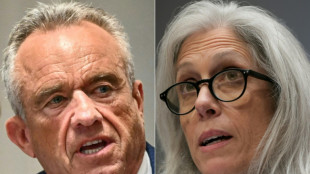 RFK Jr bashes US health agency after its chief is sacked
RFK Jr bashes US health agency after its chief is sacked
-
Swiatek wobbles at US Open as Sinner targets third round

-
 Alfred storms to 100m victory at Diamond League finals
Alfred storms to 100m victory at Diamond League finals
-
Bison herds 'reawaken' Yellowstone's prairies

-
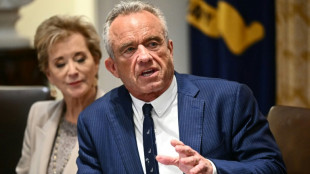 RFK Jr bashes US health agency after firing its chief
RFK Jr bashes US health agency after firing its chief
-
Swiatek labours into US Open third round

-
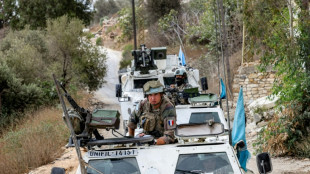 UN sets 2027 exit for Lebanon peacekeepers after Israeli strikes
UN sets 2027 exit for Lebanon peacekeepers after Israeli strikes
-
Brazil police target network that siphoned billions from fuel sector

-
 Liverpool and Man City face Real Madrid in Champions League, PSG get tough draw
Liverpool and Man City face Real Madrid in Champions League, PSG get tough draw
-
'Strangest' dinosaur covered in spiked armoury: scientists

-
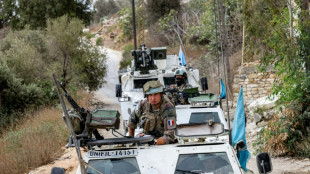 UN Security Council votes for Lebanon peacekeepers to leave in 2027
UN Security Council votes for Lebanon peacekeepers to leave in 2027
-
Badminton federation smoothes feathers ruffled by shuttlecock shortage

-
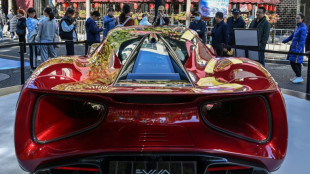 Luxury carmaker Lotus to slash UK jobs amid US tariffs
Luxury carmaker Lotus to slash UK jobs amid US tariffs
-
Small parcels in limbo as Trump moves to end US tariff exemption

-
 Russian attack killing 19 in Kyiv unleashes international fury
Russian attack killing 19 in Kyiv unleashes international fury
-
UN chief condemns 'endless' Gaza horrors as Israel presses offensive
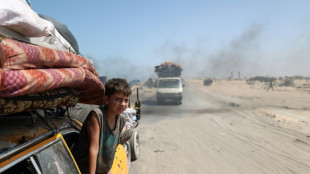
-
 Vine claims solo Vuelta stage six victory, Traen takes lead
Vine claims solo Vuelta stage six victory, Traen takes lead
-
Emma Stone stars in apocalyptic satire at Venice Film Festival
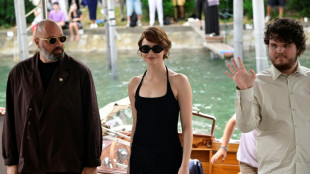
-
 England skipper Aldcroft to miss rest of Women's Rugby World Cup pool phase
England skipper Aldcroft to miss rest of Women's Rugby World Cup pool phase
-
Norris sees others closing gap with dominant McLaren

-
 UK govt seeks to overturn ban on housing migrants in hotel
UK govt seeks to overturn ban on housing migrants in hotel
-
Europe powers move to Iran sanctions 'snapback' over nuclear drive
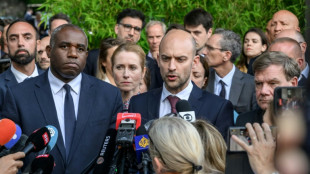
-
 Russian attack kills 18 in Kyiv, unleashes new international fury
Russian attack kills 18 in Kyiv, unleashes new international fury
-
'Ruins': Pakistan's Punjab reels from flood surge
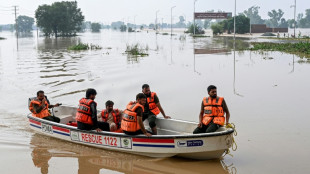
-
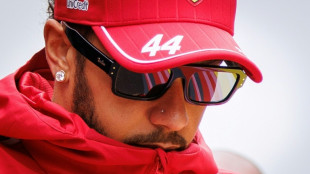 Struggling Hamilton aims to rediscover the joy
Struggling Hamilton aims to rediscover the joy
-
Europe powers move to reimpose UN sanctions on Iran over nuclear drive
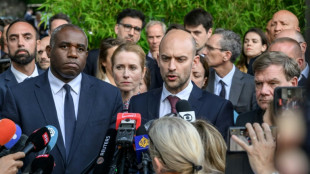
-
 US Fed Governor Lisa Cook sues Trump over move to fire her
US Fed Governor Lisa Cook sues Trump over move to fire her
-
Froome hospitalised after training crash in France

-
 Russian attack kills 17 in Kyiv, unleashes new internatioinal fury
Russian attack kills 17 in Kyiv, unleashes new internatioinal fury
-
Prince Harry to visit UK on anniversary of queen's death

-
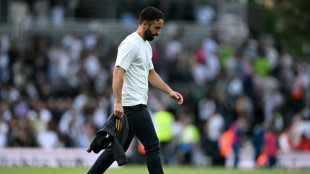 'Something has to change', says Amorim after United humiliation
'Something has to change', says Amorim after United humiliation
-
Stocks mixed after Nvidia record earnings

-
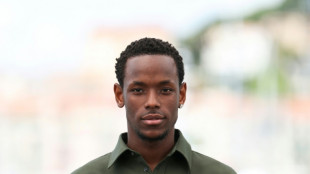 Actor Micheal Ward in UK court on rape charges
Actor Micheal Ward in UK court on rape charges
-
EU summons Russian envoy after mission damaged in Kyiv strike
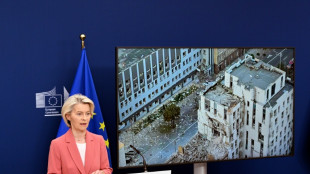
-
 Deadly Russian attack kills 15 in Kyiv, raising fears for peace talks
Deadly Russian attack kills 15 in Kyiv, raising fears for peace talks
-
Swiss court rejects Islamic scholar Ramadan's rape conviction appeal
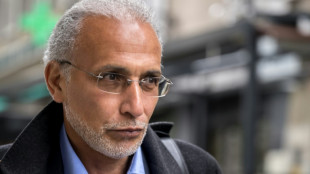
-
 Russian attack kills 14 in Kyiv, including three children
Russian attack kills 14 in Kyiv, including three children
-
Swiss economy set to slow due to US tariffs
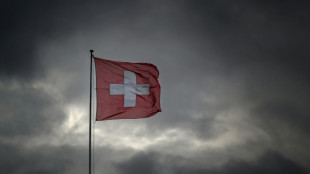
-
 Hong Kong media mogul Jimmy Lai verdict to come 'in good time': judge
Hong Kong media mogul Jimmy Lai verdict to come 'in good time': judge
-
Swiss court rejects Tariq Ramadan rape conviction appeal
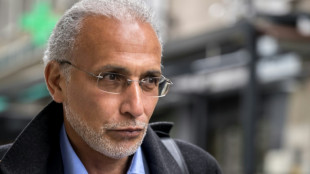
-
 Asian markets mixed after Nvidia earnings
Asian markets mixed after Nvidia earnings
-
Rising Australian golfer makes comeback after losing sight in left eye
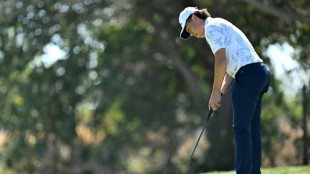
-
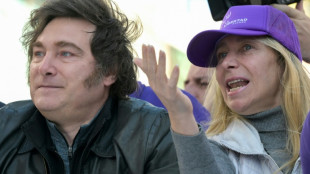 Scandal facing sister of Argentina's president: 3 things to know
Scandal facing sister of Argentina's president: 3 things to know
-
Need a pee? Japan has QR code for that
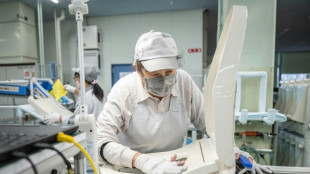

S.African journalist, 90, delivers news in the desert
Armed with a flask of coffee, some boiled eggs and a towel to shield his bare legs from the scorching sun, 90-year-old Frans Hugo sets off every Thursday to deliver newspapers in the South African desert.
Week in, week out, the elderly editor has made the 1,200-kilometre (750-mile) round trip across the semi-arid Karoo region in the country's south.
He has been doing it for some four decades.
Born Charl Francois Hugo in Cape Town in 1932 -- but known to everyone simply as Frans -- he is arguably the last bastion of a dying business.
The energetic nonagenarian edits and hand-delivers three local papers -- The Messenger, Die Noordwester and Die Oewernuus.
Driving an orange Fiat Multipla stacked with copies of the eight-page weeklies and with an old portable radio to keep him company, Hugo brings news to towns and villages dotting this vast, parched back-country.
- 1,200 km every week -
He leaves at 1:30 am from Calvinia, a small town of less than 3,000 souls about 500 kilometres north of Africa's southernmost tip, and comes back in the early evening.
"I am like a pompdonkie," he told AFP on a recent tour, using the local moniker for the nodding donkey pumps used to extract groundwater from boreholes.
"I keep doing this every Thursday without fail. I will probably stop when I am physically not capable of doing it anymore."
Hugo worked as a journalist in Cape Town and then in Namibia for almost 30 years before retiring to this remote region.
"I couldn't handle the pressure anymore, so I moved to the Karoo," he said.
"Just as I was able to take a breath and relax, the man who owned the printers and the newspaper here in Calvinia came to ask me if I was interested in the business."
His daughter and her husband got involved but tired and quit after a few months. "I've been sitting with this thing ever since," he quipped.
- Cellphones and printers -
Helped by his wife and three assistants, he has kept alive some historic small-town titles at a time where many printed newspapers around the world are struggling to survive the digital age.
The Messenger, previously known as the Victoria West Messenger, was founded in 1875, while Die Noordwester and Die Oewernuus started printing in the 1900s.
All three are written in Afrikaans, a language descended from Dutch settlers and one of South Africa's 11 official tongues, but sometimes carry stories in English.
Hugo scoffs at people wanting "to read the news on their cellphones."
The rise of internet has hit readership but is seemingly yet to reach his newsroom, which looks like a museum.
The office is adorned by an old Heidelberg printing press and paper cutting machines. Staff use computers and software from the early 90s.
Still, Hugo's team prints about 1,300 copies a week, something he says shows an undying appetite for community news.
The papers sell for eight rand (about 50 US cents) and are dropped off at shops, convenience stores and the correspondents' homes.
The readers are mainly farmers, living in a remote, semi-arid landscape.
Writing in Afrikaans, which actor Charlize Theron recently controversially said was still spoken only by "about 44 people", keeps the language alive and ties together small communities separated by hundreds of kilometres (miles) of desert, said Hugo.
As long as he's around and has the required strength, they will receive their paper every Thursday.
What will happen later does not concern him, he said.
"I don't have a clue what will happen... in five years or 10 years," he said. "I am not worried."
J.Fankhauser--BTB

